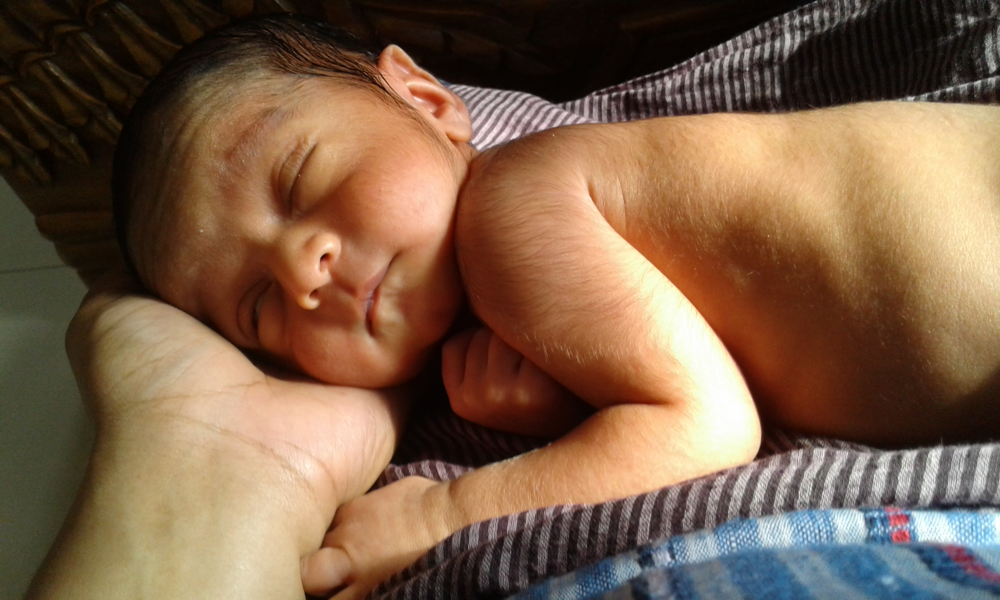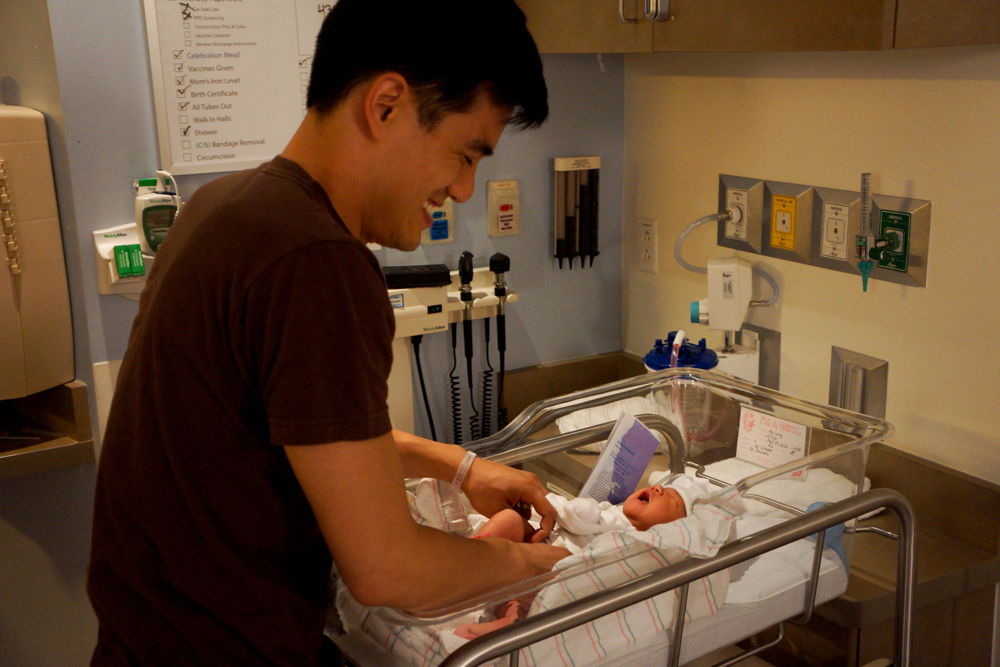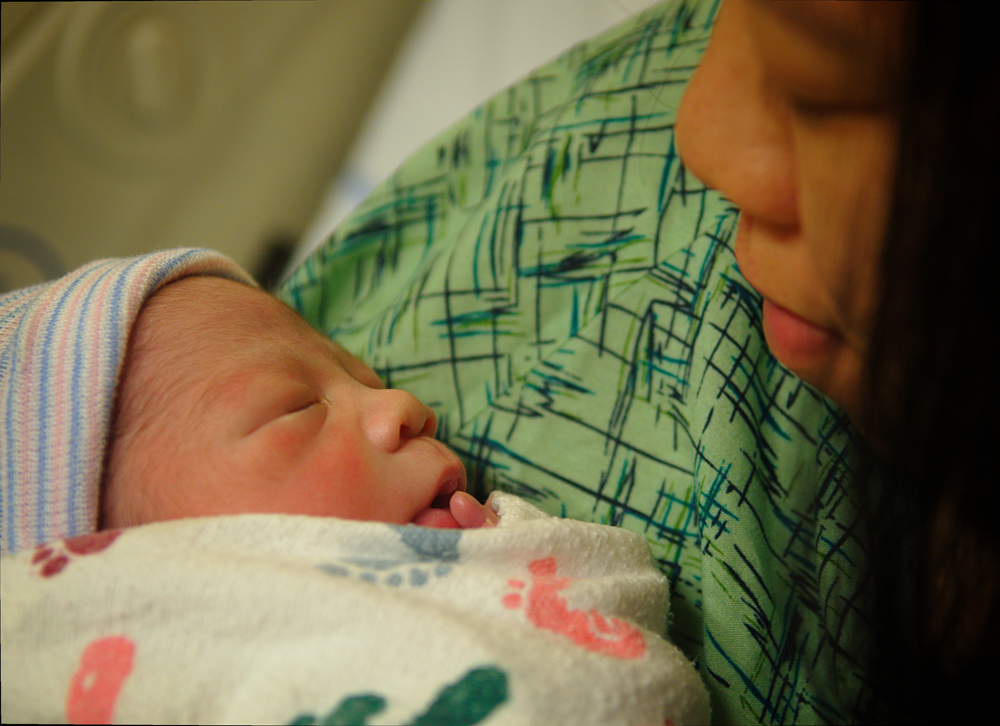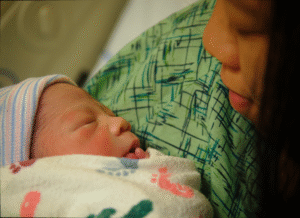İntroduction
Becoming a mother is an incredible journey, especially in those early weeks after birth. The first 12 weeks (often called the “fourth trimester”) are a time of intense change for both you and your baby. It’s normal to feel overwhelmed during this as a new mom, you’re healing from childbirth, running on little sleep, and learning to care for a tiny human who depends on you 24/7. This guide will walk you through the main challenges and milestones of the first three months – from feeding and sleep to baby care and emotional changes – with an empathetic, reassuring voice. Remember: you are not alone, and you are doing better than you think.
Feeding Your Newborn: Breast, Bottle, and Learning as You Go
Feeding will likely dominate your life in the first few months. Newborns have tiny tummies and need to eat very frequently. Expect to feed your baby around 8 to 12 times per day, which averages out to about every 2–3 hours around the clock it might feel like as soon as you finish one feeding, it’s almost time for the next! This is normal – babies grow rapidly, and frequent feeding ensures they get enough nourishment and helps establish your milk supply if you’re breastfeeding.

Breastfeeding.
If you’re breastfeeding, know that both you and your baby are learning this new skill. The first couple of weeks can be challenging as you work on getting a good latch and dealing with common issues like sore nipples or engorgement. Don’t be afraid to ask for help – a lactation consultant or experienced friend can offer guidance and support. Try to feed on demand, watching your baby for hunger cues (like lip-smacking, rooting, or sucking on hands) before they get too fussy feeding “on cue” helps ensure your baby is getting enough and can actually make feedings calmer, since crying is a late hunger sign. In the very beginning, your baby may cluster-feed (wanting several feedings close together) especially in the evenings or during growth spurts – this is normal and temporary. Make sure you stay hydrated and nourished; breastfeeding can make you extra thirsty, so keep water and snacks. and remember, comfort and positioning are key: use pillows to support your arms or c-section incision, and try different nursing positions until you and baby find what works best.
Bottle Feeding.
If you’re formula feeding or pumping and bottle feeding, that’s okay too – fed is best, and a happy, healthy baby is what matters. One perk of bottle feeding is that you can measure exactly how much baby eats, but keep in mind that appetite will vary. In general, newborns will drink about 2–3 ounces (60–90 mL) per feeding by a couple weeks old, gradually increasing as their tummy grows. Formula-fed babies often can go a bit longer between feedings since formula takes a little longer to digest. You might find your formula-fed newborn feeds roughly every 3–4 hours (around 6–8 times a day) instead of every 2–3 hours still, follow your baby’s cues – when they’re hungry, they’ll let you know with those little signals or cries. Whether you’re using breast or bottle, hold your baby close during feeds, look into their eyes, talk or sing to them. Feeding is not just about nutrition; it’s also a wonderful bonding time.
Practical Feeding Tips:
Feed on demand – Newborns thrive with responsive feeding. Watch for early hunger signs like rooting or fussiness and feed before crying starts don’t worry about rigid schedules in the early weeks.
Expect unpredictable patterns – Babies might want to eat more often during growth spurts (commonly around 2–3 weeks and 6 weeks). It’s normal if some days they seem extra hungry. Follow their lead.
Ensure a good latch (if breastfeeding) – Baby’s mouth should cover both nipple and a good part of the areola. If it’s painful throughout the feed, break the suction and try again. A deep latch protects your nipples and helps baby get milk more effectively.
Burp the baby midway and after feeding – Newborns can gulp air as they feed. If your little one seems uncomfortable or squirmy, pause to gently burp them. A common method is holding baby upright against your shoulder and patting their back.
Share feeding duties if possible – Partners can give a bottle of expressed milk or formula, or help by burping the baby and changing diapers after a feed. Even if you’re breastfeeding exclusively, your partner can bring you water or a snack while you nurse and handle the next diaper teamwork makes those endless feedings more manageable!
Above all, be kind to yourself as you navigate feeding. Both breastfeeding and bottle feeding come with learning curves. You might feel clumsy at first – that’s okay. With time, you’ll become more confident and attuned to your baby’s signals. As long as your baby is gaining weight and having plenty of wet and dirty diapers (around 6+ wet diapers a day by the end of the first week is a good sign), they’re getting enough to every baby is unique in their eating habits, so try not to compare too much with others. You’re doing a wonderful job nourishing your little one, one feed at a time.
Newborn Sleep and Parental Exhaustion
If you feel like you’ve never been this tired in your life, you’re probably right. Newborn sleep is a paradox: newborns sleep a lot in total hours, but their sleep is broken into short chunks, which means parents’ sleep gets broken into short chunks too. In fact, a newborn may sleep up to 16–18 hours a day, but usually only 2–4 hours at a stretch (day and night) in the first weeks they wake easily and often – to feed, because they’ve peed, or sometimes for no clear reason at all. This fragmented sleep schedule is biologically normal (babies need frequent feeds and haven’t yet learned day from night), but it can leave you feeling utterly exhausted.
It will get better – but in the meantime, it’s important to prioritize rest for yourself whenever you can. You might have heard the advice “sleep when the baby sleeps.” It sounds cliché, but it’s truly wise counsel during these early months instead of using baby’s nap to do laundry or check emails, at least some of the time try to lie down and nap too. Yes, the dishes may pile up and the house might be messy, but getting even a 20-minute catnap can do wonders for your mood and health. Accept help from your partner, family, or friends so you can catch extra sleep – for example, someone else can hold the baby while you take a shower and a quick snooze.

Helpful Resources for First-Time Moms
What to expect from newborn sleep: New babies don’t yet have a sense of day and night. One week old, your baby might be awake for an hour at 3 AM and then snooze for a stretch in the middle of the day. This day-night confusion usually improves by around 6–8 weeks as their internal clock matures. By 3 months, some (though not all) babies start consolidating more sleep at night – maybe a stretch of 5–6 hours – but many will still wake throughout the night. It’s important to set safe sleep habits from the start: always place your baby on their back to sleep, on a firm flat surface like a crib or bassinet, without loose blankets or pillows. Room-sharing (having baby’s bassinet in your room) is recommended in many countries for the first 6–12 months, as it can make nighttime feedings easier and is associated with reduced SIDS risk.
Coping with sleep deprivation: There’s no magic fix, but these tips can help you survive (and even occasionally thrive!) despite the exhaustion:
Nap when baby naps – even if it’s just one daytime nap, it can make a difference. The laundry can wait. Prioritize your rest whenever possible.
Shift some duties – If you have a partner, consider taking “shifts” at night. For example, one parent does the late evening feeding while the other sleeps early, then you swap. If you’re breastfeeding, your partner can at least handle diaper changes or burping so you can settle back to sleep faster.
Create a calming routine – It’s early yet, but even newborns can start to pick up cues. At night, keep lights low and voices quiet during feedings and changes, so baby starts learning that nighttime is for sleeping. During the day, expose them to natural light and normal household noises. Over time this helps set their circadian rhythm.
Take care of your safety – Being severely sleep-deprived is like being tipsy; it affects your reflexes and concentration be cautious with things like driving – if you’re too tired, ask someone else or delay the trip. And if you ever feel yourself nodding off while holding or feeding the baby, put the baby in a safe spot (their crib or bassinet) and lie down in your bed so you both stay safe.
Limit visitors and outside demands – It’s okay to turn down social events or ask excited visitors to come another time. The first weeks are about survival and bonding. True friends and family will understand if you need to keep your life low-key for a while.
Most importantly, remember that this sleep situation is temporary. It’s not because you’re doing something wrong; it’s just how newborns are. There will come a night – sooner than you think – where you realize you got a few solid hours of sleep in a row. Until then, coffee, humor, and accepting any help offered will be your best friends. Hang in there!
Baby Crying: Your Little One’s Language (and How to Cope)
All babies cry – some more than others. Crying is your newborn’s first language. Since they can’t talk, they rely on cries (and a mix of grunts, squeaks, and squirms) to tell you what they need. In these first months, you’ll gradually learn to decipher some of your baby’s cries. A hungry cry might be short and low-pitched, escalating in intensity, whereas an overtired cry may sound more like wailing. However, even veteran parents will admit that sometimes it’s hard to know why a baby is crying. Did I feed her enough? Is her diaper irritating her? Is she in pain? It’s easy to second-guess yourself.
First, know that it’s normal for newborns to have fussy periods that you just can’t figure out. In fact, infant crying tends to peak around 6–8 weeks of age Many babies go through a stage (often called the “period of PURPLE crying” or just the witching hour) where they have a long stretch of crying in the late afternoon or evening, seemingly without cause. This usually improves by around 3–4 but while it’s happening it can be incredibly stressful for parents. If you have a particularly colicky baby who cries for hours, remember: this phase will end. You are not spoiling your baby by responding, and your baby isn’t crying because you’re a “bad mom.” Some babies just need more help to calm their little systems as they adjust to the world.
How to soothe a crying baby? Start with the basics: check the needs. Are they hungry or gassy? Need a diaper change? Too hot or cold? Often, tending to one of these will solve the crying. If not, try comfort measures. Newborns love sensations reminiscent of the womb, what some call the “Five S’s”: swaddling, side/stomach position (for holding them only, always put baby on their back to sleep), swinging or gentle rocking, shushing sounds, and sucking (offer a pacifier or your clean finger to suck on). You might rock your baby in your arms, walk them in a carrier, or simply hold them skin-to-skin against your chest. Softly singing or humming, or playing white noise, can also help. Warm baths can sometimes break a crying cycle too (or at least give both of you a change of scenery).
Despite your best efforts, there will be times when nothing works immediately. You could try every trick in the book and your baby might continue to cry regardless This can be heartbreaking and infuriating at the same time. Take a deep breath and remind yourself that it’s not your fault. The most seasoned parents have been there. If you ever start feeling overwhelmed by the crying – and it happens to almost everyone – it’s okay to step away for a moment. Put your baby safely in their crib or bassinet, walk into the next room, and give yourself a short break to breathe and regroup crying won’t harm your baby – and they might even surprise you by dozing off once they’re left in a calm, dark space. Never shake your baby out of frustration, no matter how desperate you feel. Shaking can cause serious injury instead, tag in your partner or another trusted caregiver if possible, or simply take five minutes to yourself to release tension (cry, scream into a pillow, splash water on your face – whatever helps).
When to worry: You’ll get to know your baby’s “normal” crying patterns. If your baby’s cry suddenly sounds painful or frantic and can’t be consoled, or if you notice other symptoms (like fever, vomiting, a swollen belly, or baby seems ill), it’s wise to call your pediatrician. But in general, persistent fussiness in the early weeks is normal, and as long as baby is fed, gaining weight, and has periods of calm, it’s usually not a medical issue some babies just cry more than others. Keep offering comfort, and eventually the storm will pass. Over the coming weeks, your baby will gradually learn other ways to communicate (like making eye contact, cooing, and – the reward for all your hard work – smiling at you around 6–8 weeks). As they grow, crying will lessen and you’ll have more tools to figure out their needs.
For now, do whatever safe soothing techniques work for your family, and don’t hesitate to lean on support. If you have a partner, take turns dealing with a fussy baby so each of you can get a break. If you’re solo, is there a friend, parent, or neighbor who can swing by to help, even for 30 minutes? Sometimes just having someone else hold the baby can give you a much-needed reset. Remember, responding to your infant’s cries is not “spoiling” them – you are teaching them that the world is safe and their needs will be met. You cannot spoil a newborn with love and attention in these early months.
Lastly, give yourself credit: getting through a marathon crying session with your sanity (mostly) intact is absolutely an accomplishment. It’s okay to feel drained and emotional afterwards – make sure to take care of yourself, even if it’s just a quiet cup of tea or venting to a supportive friend about how hard this is. You’re only human, and parenting a crying newborn can test the best of us. Better days are ahead.
Your Postpartum Body: Healing Takes Time
While you’re busy caring for baby, don’t forget that you’re recovering from birth. Whether you had a vaginal delivery or a C-section, your body has been through a lot. In the first days and weeks, you may experience a variety of physical symptoms as you heal. It’s totally normal to still look a few months pregnant for a while – your uterus needs time to shrink back down. Right after birth, your uterus is about the size it was at 6 months pregnant, and by about 6–8 weeks postpartum it will return to its pre-pregnancy size. Until then, you might have a squishy belly and still wear maternity leggings for comfort. Be patient with your body as it recovers and heals – growing and delivering a baby is an incredible feat, and recovery is not instant.
Here are some common postpartum experiences in the first 3 months:
Vaginal soreness: If you had a vaginal birth, especially with a tear or episiotomy, you’ll likely have perineal pain and soreness for a couple of weeks. Sitting on a soft pillow, doing sitz baths (soaking your bottom in warm water), and using pain relief spray or witch hazel pads can help. The stitches (if you have them) will dissolve on their own. Expect it to feel tender when you cough or use the bathroom. It gradually improves each week.
Bleeding and discharge: You’ll have vaginal bleeding called lochia for up to 4-6 weeks after birth. It starts heavy and bright red (like a very heavy period), and over time turns brownish and then yellow-white before stopping. You’ll need to wear pads (avoid tampons in this phase). It’s normal for bleeding to be heavier with activity or breastfeeding (nursing triggers uterine contractions that help your uterus shrink, which can expel more blood). If you soak a pad within an hour or pass very large clots after the first few days, or if your bleeding suddenly gets heavy again, let your doctor know. Otherwise, just know that bleeding tapering off by around the 6th week is expected
Afterpains: You might be surprised to feel cramping in your lower abdomen after birth, especially during breastfeeding. These “afterpains” are your uterus contracting back down to size, and breastfeeding triggers the release of oxytocin which strengthens those contractions the cramps are usually mild for first-time moms but can be more intense with subsequent babies. A warm pack on your belly or mild pain relievers your doctor okayed can ease the discomfort. The good news is afterpains mean your body is healing (and they usually subside within a week or so).
C-Section recovery: If you delivered via cesarean, you have a surgical incision that needs extra care. You’ll be sore – moving, laughing, even coughing can hurt at first. Take pain medication as prescribed and try a belly binder if your doctor recommends it for support. Avoid lifting anything heavier than your baby for the first few weeks. Get help with chores that involve bending or straining. It’s important to move gently but regularly (short walks around the house) to promote circulation, but also give yourself permission to rest – you had major surgery. Watch your incision for any signs of infection (increasing redness, warmth, swelling, or discharge) and keep it clean and dry. By 6 weeks, you should feel much better, but full recovery from a C-section can take a few months.
Breast changes: Around 2-5 days after birth, your milk will come in. Your breasts may become very full, hard and warm (engorgement). This can happen even if you’re not breastfeeding. For relief, feed the baby or pump a little, apply cold packs between feeds, and wear a supportive bra. If you’re formula feeding and want to suppress milk, avoid stimulation (no pumping) and use cold cabbage leaves or cold compresses for comfort; the engorgement will pass in a few days. You might also experience leaking breasts – nursing pads in your bra can save your shirts from milk stains.
Sweating and swelling: Don’t be alarmed if you wake up at night drenched in sweat. Postpartum night sweats are a common way your body sheds excess fluid retained during pregnancy. It’s also normal for your ankles and face to still be a bit puffy after birth; within 1-2 weeks the swelling should go down as your body releases fluids. Stay hydrated even though you’re sweating – it helps!
Fatigue and aches: Your body is recovering from the monumental task of childbirth and running on minimal sleep. It’s no wonder you might feel like you got hit by a truck. General body aches, back pain, and headaches (especially if you had an epidural) can occur. Try to rest when you can, use good posture when feeding (bring baby to your breast, not hunching over), and consider simple postpartum stretches or yoga when you feel up to it. But no intense exercise until your healthcare provider gives you the go-ahead, usually around 6 weeks or later.
A key point to remember: everyone’s recovery is different. Even if your neighbor was jogging at 4 weeks postpartum, that might not be right for you – and that’s okay. Listen to your body and don’t push yourself too hard too soon.
Also, keep up with your postpartum medical check-ups. Typically, there’s a check around 6 weeks to assess your healing, discuss birth control if needed, and address any concerns. Many providers also like to check in sooner (around 1-3 weeks) if you had a C-section or any complications. Use those appointments to ask questions – no concern is too small.
Finally, seek help if something feels off. Warning signs to call your doctor about include: fever over 38°C, severe abdominal pain, foul-smelling discharge, very heavy bleeding (soaking a pad in under an hour), a hard painful lump in the breast (could be mastitis), painful swelling in your legs, or anything that just worries you. And if you ever experience chest pain, difficulty breathing, or thoughts of harming yourself, seek emergency care immediately. These are rare, but it’s important to be aware.
In these early months, try not to stress about “losing the baby weight” or “getting your body back.” Your body is your body, and it did something amazing. Treat it with kindness. Eat nutritious foods to fuel healing (but don’t worry if your diet isn’t perfect – grabbing a quick sandwich or some biscuits is fine when you’re busy with baby). Stay hydrated, especially if breastfeeding (aim for a glass of water every time you nurse). And give yourself grace – recovery isn’t linear. You might have days you feel almost normal and days you feel utterly sore and exhausted. By three months, many moms start to feel much more like themselves physically. Until then, go easy: prioritize rest, and gradually increase activity as it feels comfortable. Your only job is to recover and take care of that baby – everything else can wait.
Emotional Ups and Downs: Baby Blues and Beyond
Your body isn’t the only thing recovering postpartum – your emotions are on a roller coaster ride. One minute you’re gazing at your baby feeling so much love that you cry happy tears, and the next minute… you’re just crying, and you’re not even sure why. Welcome to the baby blues, an experience up to 70–80% of new mothers go through in the first days after birth.
The baby blues typically start a few days postpartum (around day 3 or 4 when your milk comes in and hormones shift) and are characterized by mood swings, weepiness, anxiety, and feeling overwhelmed. You might find yourself crying over everything and nothing: a sad TV commercial, your baby making a cute face, or because you’re out of clean socks. It can be confusing to feel so low during what you expected to be a purely happy time. Rest assured, it’s normal and temporary. The baby blues usually peak in the first week and taper off by around two weeks postpartum as your hormone levels stabilize.
During this phase, the best thing you can do is ride the wave and not judge yourself for your feelings. Let the tears flow if they come – it’s a release. Talk to someone you trust about how you’re feeling, whether that’s your partner, your mom, or a close friend. Often just saying “I feel really sad and I don’t even know why” and hearing someone respond “I’ve been there, it’s okay” can be incredibly relieving.
Baby blues don’t require medical treatment beyond support and understanding. What they do require is rest and reassurance. Try to sleep (or simply relax) whenever you can, because exhaustion can worsen the emotional swings. Accept help so you’re not also worrying about cooking or cleaning. These mood swings are a sign that you need TLC just as much as your baby does.
Now, while baby blues are common and short-lived, it’s important to know about postpartum depression (PPD) and anxiety, which are more serious and can happen in the first few months after birth. Unlike baby blues, postpartum depression does not always go away on its own and can emerge any time in that first year (often around 1-3 months in). Symptoms include persistent sadness or emptiness, frequent crying, loss of interest in things you used to enjoy, withdrawing from loved ones, feelings of guilt or worthlessness, and possibly changes in eating or sleeping far beyond the “new mom norm.” Some women describe feeling nothing toward their baby or feeling hopeless, which then makes them feel terribly guilty.
Postpartum anxiety is another common condition – it might show up as constant worry about the baby’s health or safety, racing thoughts, inability to relax even when the baby is sleeping, or physical symptoms like a pounding heart and insomnia. There are also other postpartum mood disorders (like postpartum OCD or PTSD from a traumatic birth), but the key takeaway is: if you feel miserable, very anxious, or not like yourself at any point, please reach out for help.
How do you know if it’s just blues or something more? A general guideline: if intense feelings last more than two weeks, or if at any time you have thoughts of harming yourself or feel you can’t care for your baby, those are red flags that you should speak with a healthcare professional.
Postpartum depression is common (affecting about 1 in 7 new mothers, across all cultures) and it’s not your fault. It doesn’t mean you don’t love your baby; it means your brain chemistry is off balance in this demanding period. The great news is that PPD and anxiety are treatable – through therapy, support groups, medication if needed, or often a combination of these. The first step is telling someone how you feel. This could be your doctor or midwife, who can screen you with some questions and direct you to resources. It could also be telling your partner, “I’m not feeling right, I think I need help,” so they can support you in seeking care.
Remember, asking for help is a sign of strength, not weakness. Your partner or family can play a big role here too – sometimes they may notice you’re struggling even before you fully realize it. (In fact, partners should also be aware that they can experience postpartum depression or anxiety – the adjustment is big for dads and co-parents too.) Don’t try to “tough out” severe feelings out of shame or fear; postpartum mood disorders are medical conditions and nothing to be ashamed of. With proper help, you will get better. Many mothers who’ve been through PPD will tell you that reaching out for help was the best thing they did, and that with treatment they were able to bond with their baby and enjoy motherhood much more.
Even if you don’t have full-blown PPD, you might still feel a mix of other emotions: loneliness (caring for a newborn can feel isolating at times), irritability (small things might set you off when you’re tired), or anxiety about every little decision. One mom described the early weeks as “feeling like I have this precious, fragile thing and I’m terrified I’m going to mess up.”
If you feel anxious, try to limit excessive Googling (so hard, I know!) and pick a couple of trustworthy sources or healthcare professionals to consult instead. Too much information can be overwhelming. Also, try some mindfulness techniques: even a few deep breaths or a short walk outside with the stroller can help calm a spiraling mind.
Finally, celebrate the small victories to boost your mood. Did you get the baby to sleep after a fussy spell? High five! Managed to eat a decent breakfast? That’s a win. These little moments of success and joy – a cuddle here, a cute baby yawn there – will gradually start to outweigh the hard moments. And as your baby starts to interact more (that first smile will melt your heart), you’ll get positive feedback that can really lift your spirits.
It’s okay if you don’t feel an Instagram-perfect bliss every day. Love for your baby often grows over time as you get to know each other. You’re bonding in your own way, at your own pace, even if it just feels like exhaustion and routine right now. Cut yourself slack and focus on getting through one day (or one hour) at a time.
If you’re ever uncertain about your emotional health, it’s always better to speak up. There are hotlines, postpartum support groups, and professionals who specialize in this period of life. You are not alone in feeling what you feel. Many, many mothers have walked this path and come out the other side. With support and time, the emotional clouds will start to part, and you’ll find more sunny days in motherhood.
Becoming “Mom”: Finding Your New Identity
Amidst all the physical and emotional upheaval, there’s something else profound happening: you are becoming a mother, and that is a huge identity shift. In fact, there’s a term for it – matrescence, the process of becoming a mother, akin to the way adolescence describes the transition to adulthood. It’s not talked about enough, but it’s so real. One first-time mom put it this way after her baby arrived: “I fantasized that I would instantly connect with my baby and my maternal instinct would kick in. Instead, I found myself grappling with mixed emotions and a changing identity… Motherhood is hard,” she admitted, voicing a truth that isn’t always acknowledged her words highlight a common experience: you may love your baby to pieces, yet still mourn your old life or feel unsure of who you are now.
It’s okay to feel conflicted as you step into this new role. You’ve had nine months of pregnancy to mentally prepare (to some extent), but nothing truly prepares you for the moment you come home and life as you knew it is turned upside down. Your routines, your priorities, even your relationships with others – all are undergoing a change. It can be jarring to lose the freedom you once had; now even a simple trip to the store requires planning around feeding and nap times. You might miss your old work or social life, or feel a twinge of envy seeing friends who don’t have kids able to go out easily. Then you might feel guilty for even thinking that, because you should be nothing but grateful and happy, right? Let’s set the record straight: it’s entirely possible to adore your baby and simultaneously miss aspects of your pre-mom life. Missing your old self does not mean you’re a bad mother – it means you’re a human adjusting to a monumental life change.
During these first three months, give yourself permission to slowly grow into your new identity. You don’t become “Mom” overnight at the baby’s birth any more than your baby can walk the day they’re born. It’s a journey for both of you. Some days you might feel empowered – like “Wow, I’m actually doing this, I kept the baby fed and safe and even managed a load of laundry!” Other days you might feel like you have no idea what you’re doing. That’s normal. Confidence will come with experience, and you are gaining experience every single day.
Here are a few thoughts on navigating the identity shift:
Stay connected to your pre-mom self (in small ways). Having a newborn means your time and energy revolve around them, but you don’t have to erase yourself. Maybe you always loved reading novels – you might not have hours to curl up with a book now, but perhaps you can try audiobooks during feeds or brief reading while baby naps on you. If you loved fitness, a full gym session might be out of reach, but a gentle postpartum yoga video when baby is calm could help you feel like you again. Reconnecting with pieces of your old hobbies or passions, even for 10 minutes, can remind you that you’re still you, just with a new addition.
Talk to other moms. There is something magical about chatting with someone who’s in the trenches or has been there recently. They get it in a way others might not. Consider joining a new mom support group (many are available virtually if getting out is hard) or simply text with that cousin or friend who has young kids. Hearing that they also struggled, that they also felt a bit lost, can be incredibly validating. They might share tips, but even more valuable is the camaraderie – the “omg me too, I thought I was the only one who felt that way” moments. Knowing that the roller coaster of emotions and identity questions is a normal part of becoming a mom helps you be gentler with yourself.
Communicate with your partner (if you have one). Your relationship is also adjusting to this new reality. It’s easy for resentments to build if one person feels they’ve “changed” more or is doing more of the work. Try to share your feelings without blame. For example, “I miss spending time with you” or “I sometimes feel like I’ve lost myself and it scares me.” Bringing your partner into your inner world helps them understand what you’re going through. They might be having their own version of identity shift (suddenly being a dad, provider, etc.). Both of you are reinventing yourselves in a way, and supporting each other through it – and maybe laughing together about the absurdities of new parenthood – can strengthen your bond.
Embrace the learning curve. Our society often expects women to become perfect mothers the instant the baby arrives, but that’s unrealistic. Think of any new job or new skill – you wouldn’t expect to master it immediately. Motherhood is learned on the job. You are allowed to make mistakes and figure things out as you go. You might try one approach to get baby to nap and find it doesn’t work – that’s okay, you’ll try something else next time. Over time, you’ll develop your own mothering style that fits you and your baby. There’s no one “right” way, despite what social media or well-meaning advice-givers might imply. Trust that you will find your way.
Find moments of joy and meaning. Amidst the exhaustion, there will be small moments that light you up – perhaps when your baby locks eyes with you, or when they make that tiny sigh of contentment after a feeding and snuggle into your chest. Maybe late at night, you’re tired but you get to enjoy the quiet stillness of rocking your baby while the world sleeps. These little moments can make you think, “Okay, this is what it’s about.” Collect them. Some moms keep a journal of one tiny happy moment a day, even if it’s “drank a hot cup of tea while baby napped.” It can help to look back and realize there were flecks of gold in the challenging days, and those grow more numerous with time.
Most importantly, know that your identity as a mom will evolve. You don’t have to give up who you were; you are adding a new layer to yourself. Over the first year, you’ll start to integrate “mom” into your sense of self more comfortably. The fog of the newborn phase will lift, and one day you’ll realize you feel pretty at home in this role – not that you have all the answers (no parent ever does!), but you’ll carry the title “Mom” with more confidence and on your own terms. For now, take it day by day. It’s okay if you sometimes feel like “I have no idea what I’m doing” – your baby doesn’t know that. To them, you are the world, and you are enough just as you are.
Lean on Your Partner and Support Network
If there’s one piece of advice every new mom deserves to hear, it’s this: You are not meant to do this alone. Raising a baby is a tough job, and throughout history, people have done it with the help of family and community. In today’s world, you might feel like you have to be Supermom and handle everything yourself, but that’s neither realistic nor healthy. Whether you have a spouse, partner, family members, or close friends – now is the time to embrace teamwork and accept help.

Involving your partner: If you have a partner, remember that they are also a new parent now. In the blur of mom-and-baby, partners can sometimes feel unsure of their role. Invite them in! They may not be able to breastfeed, but they can do practically everything else for the baby. From diaper changes and burping, to bath time, to walking and soothing the baby, partners can be equal players. In fact, studies show that when fathers/partners share in the baby’s care, it directly reduces the mother’s stress levels and even lowers the risk of postpartum depression plus, it helps the partner bond with the baby and gain parenting confidence. So it’s a win-win-win: good for you, good for them, good for baby. How you divide things will depend on your situation, but communication is key. Don’t assume they know what you need – ask them. Perhaps you’d love if your partner could take the baby for a 30-minute walk each evening so you can shower and decompress. Or maybe during night feedings, you’d feel less alone if they sit up with you or handle diaper duty after you nurse. Many partners want to help but aren’t sure how – so tell them specifics. It could be as simple as, “Can you please cook us some pasta? I haven’t had a chance to eat and I’m starving,” or “Could you rock the baby for a bit? I need to stretch my legs.”
Also, be understanding that your partner is tired too and adjusting in their own way. Try not to keep score of who’s doing more (hard, I know, at 3 AM when you feel like you’ve been up every time). Instead, keep talking about what’s working and what isn’t. If both of you are stretched thin, consider outside help if feasible (a relative coming by, hiring a postpartum doula, etc.). Even short breaks for each of you can make a big difference in patience levels. And don’t forget to share the joyful moments with your partner, not just the chores. Cuddle together in bed with the baby on a Saturday morning, marveling at the tiny person you made. Take photos of them napping on Daddy’s chest. These are bonding moments for your new little family.
Reaching out to others: In many cultures, new moms are surrounded by extended family who cook, clean, and take care of her while she takes care of the baby. If you have family members or friends nearby, let them lighten your load. Now is not the time to be proud or pretend you have it all together. If your mom or sister wants to fold your laundry or bring you meals, let them! If a friend asks “Is there anything I can do?” consider saying yes – maybe they can pick up groceries, or come hold the baby for an hour so you can nap. People generally love to help a new baby family; they just need guidance on what you need.
If you don’t have a local support network, look for groups in your community. Many areas have new parent support groups, breastfeeding support meetings, or baby-and-me classes (like newborn massage or music classes) which can be a great way to meet other moms. It might feel hard to get out of the house at first, but even a weekly meet-up can give you something to look forward to and a place to share experiences. Online communities can also be a lifesaver at 2 AM when you’re up feeding – somewhere out there, another mom is awake too, and sometimes you can find each other on forums or social media groups. Just take online advice with a grain of salt and remember every baby is different.
If you have older children, your support network is even more crucial – perhaps someone can help entertain the older kiddo or drive them to school while you recover from birth. And if you don’t have much support and feel isolated, consider reaching out to a healthcare provider; they often can connect you with community resources, home visiting programs, or support lines.
Strengthening your relationship: It’s worth noting that the arrival of a baby can put strain on even the strongest relationships. Lack of sleep, new responsibilities, and zero time for each other is a recipe for tension. This is common – so if you and your partner find yourselves snapping at each other or feeling distant, don’t panic. Try to carve out tiny moments of connection. Maybe it’s having breakfast together (with baby dozing in a bouncer nearby) and just asking each other how you’re doing. Or a quick hug and kiss in passing to remember you’re a couple, not just co-parents business-managing a baby. Working as a team in baby care can actually bring you closer – you develop an “in the trenches together” camaraderie. Many couples say they found a new level of respect and love for each other seeing their partner care for their child. Express appreciation for each other whenever you can (“I love how you make her smile,” or “Thank you for doing the midnight bottle, I really needed that sleep”). Little kindnesses go a long way in keeping your bond strong during this transition.
And eventually – not in the first crazy weeks, but maybe by month 2 or 3 – try to allow yourselves a little couple time. Even a 30-minute walk with the baby in the stroller, just talking together, or a take-out dinner at home after baby’s asleep, can count as a “date.” It doesn’t have to be fancy. The idea is to remember that you’re in this together, and nurturing your relationship is also indirectly nurturing your baby, because a happy partnership creates a loving environment for your child.
Bottom line: there’s strength in numbers. Whether it’s your partner, your family, or your chosen community, don’t hesitate to lean on them. Motherhood isn’t a solo performance; it’s okay – in fact, wonderful – to make it a group effort. You’ll likely find that people want to be there for you and the baby. Let them. As the African proverb says, “It takes a village to raise a child,” and you deserve a village cheering you on and helping carry the load.
Baby Care Basics: Diapers, Bathing, and Other Newborn Essentials
Caring for a newborn can feel like a crash course where you’re learning on the job. The good news is that babies’ needs in the first three months are actually pretty simple: eat, sleep, pee/poop, be clean and cuddled, repeat. It’s the frequency and unpredictability that make it challenging, not the complexity of tasks. Let’s break down a few basic baby-care tasks and tips:
Diapering. Get ready to change a lot of diapers! Newborns typically wet and/or dirty at least 8–12 diapers a day in the beginning. It may seem nonstop, but you’ll soon be a pro at quick changes. To prevent diaper rash, change diapers regularly (don’t let baby sit in a soiled diaper too long). Gently clean the diaper area with wipes or a soft cloth (for baby girls, always wipe front to back). Make sure the skin is dry before putting on a fresh diaper. You usually don’t need special creams or powders every time – in fact, less is more unless there’s redness. If you do notice a bit of rash or irritation, you can apply a thin layer of zinc oxide cream as a barrier. Give baby some diaper-free time each day if possible (lay a towel down and let them hang out naked for a few minutes) – airflow is great for preventing rashes.
For baby boys, be aware of the “cold air pee” phenomenon – many a parent has been spritzed in the face by an unexpected fountain when the diaper comes off! You can place a cloth over him while changing to avoid surprises. And remember, baby’s poop evolves: in the first days it’s black and tarry (meconium), then transitions to yellowy/seedy if breastfeeding or more paste-like if formula feeding. Frequency can range from several times a day to once every few days. By 6-8 weeks, some breastfed babies may go a few days without a poop – that can be normal as long as they’re otherwise content. Keep an eye out for very hard, pellet-like stools (could mean constipation) or extreme fussiness with no poop, and consult your pediatrician if concerned. But generally, expect a rainbow of poops and don’t be alarmed – you’ll get very used to talking about baby poop colors and textures (the things parenthood does to us!).
Bathing. Surprisingly, newborns do not need a daily bath. In fact, too-frequent bathing can dry out their delicate skin. Two or three baths a week is plenty for the first few months. On non-bath days, you can do “top and tail” – meaning just clean their face, neck folds, hands, and diaper area with a warm damp cloth. When you do bathe baby, pick a time when they’re calm and not too hungry or too full. Newborn baths can be a bit tricky until you get the hang of it. You might use a baby bathtub or simply a basin in the sink – whatever feels safest for you. Sponge baths are recommended until the umbilical cord stump falls off (usually by 1-3 weeks), to keep that area dry. This means you’ll just wipe them down with a warm washcloth instead of submerging in water.
Once the cord is off, you can do actual tub baths. Keep the room warm, and use only a few inches of warm water in the tub. Support baby’s head and neck with one hand and gently wash with the other – you don’t really need soap, but if you use one, choose a mild, fragrance-free baby wash. Be extra careful to support them; they’re slippery when wet! Talk or sing to your baby – your voice will reassure them. Some babies love baths and find them soothing; others might howl initially. That’s okay, keep it short and sweet if so. Have a soft towel ready (hooded baby towels are great). Pat them dry, especially in creases. And don’t forget: never leave a baby alone in a bath, even for a second – they can drown in very little water. If you need to leave, wrap baby in a towel and take them with you.
After bathing (or any time, really), you can apply a gentle baby moisturizer if their skin seems dry. Newborn skin often peels in the first weeks (especially if born past due date) – that’s normal and doesn’t necessarily require lotion; it will resolve on its own. You might also notice baby’s skin has some blemishes like newborn acne or a flaky scalp (cradle cap). These are common and generally harmless. Avoid the temptation to pick at anything; just wash gently and moisturize if needed. If you ever see a rash that concerns you (very red, or baby seems uncomfortable), check with your pediatrician.
Umbilical cord care. That little stump is a remnant of their life inside you. It looks a bit odd and can have a smell as it dries. The best thing is to keep it clean and dry and let it fall off on its own. Fold the diaper down in front so it doesn’t rub the cord stump. You don’t need to put alcohol or anything unless instructed by your doctor – recommendations have changed, and dry cord care is often advised. It will usually drop off by 1-2 weeks. A tiny bit of blood or oozing at the separation point can be normal; just wipe gently with clean water and dry. If the skin around it becomes very red, has a foul discharge, or if the cord hasn’t fallen off by 3+ weeks, have the doctor take a look. After it’s off, you can graduate from sponge baths to regular baths.
Handling your newborn. Many first-time parents are intimidated by how floppy and fragile newborns seem. While it’s true you must support their head and neck (they can’t hold their head up yet, so always cradle the head when you lift/hold them), know that babies are not quite as fragile as they appear. Normal handling, gentle bouncing, and wearing baby in a carrier are all okay. Just avoid any jerky or violent motions (never shake, toss in the air, or jiggle too hard). When picking baby up or putting them down, go smooth and slow. Over time, you’ll gain confidence and baby will get sturdier. By 3 months, most babies have much better head control and you won’t need to be quite as cautious.
Soothing and bonding. We covered a lot in the crying section, but as part of basic care: remember that things like skin-to-skin contact (holding baby on your bare chest) is incredibly beneficial in the early weeks. It helps regulate baby’s temperature and breathing, promotes bonding, and often calms them. Cuddling your baby and responding to their needs is not just care, it’s the foundation for their emotional security. You cannot spoil a newborn with too much attention. If they’re crying, it’s because they need something – even if that something is just to be held close by you. So don’t hesitate to snuggle often.
Take note of safety basics too: always use a proper infant car seat when traveling (and get it inspected or installed by a professional if possible), never prop bottles (always hold baby when feeding), keep small objects and loose bedding away from baby, and never smoke around the baby (secondhand smoke is dangerous for infants).
It’s a lot to think about, but as you practice these things, they become second nature. In time, you’ll develop a routine of sorts. Maybe not a strict schedule (most young infants aren’t on a firm schedule yet), but a pattern that works for you. For example, you might find a rhythm like feed → a little awake time (making faces, a song, or just gazing around) → then sleep, repeated throughout the day. Newborns can only stay happily awake for maybe 45 minutes to an hour at a time before getting overtired. You’ll start to recognize signs of sleepiness (yawning, staring off, fussing) and can begin to put them down for a nap before they become over-stimulated.
Figuring out these patterns is like learning your baby’s language. It takes time, but each week you’ll notice you know your baby a bit better. And don’t forget: every parent learns through trial and error. You might buy a fancy swing or bassinet that everyone swore by, but your baby might only want to sleep in your arms. Or you might think “I’ll never use a pacifier,” then day 10 hits and you gladly pop one in to soothe the baby (totally fine, by the way!).
Stay flexible and follow your baby’s cues rather than any rigid rules from books. Basic care tasks will become muscle memory soon enough – there will come a day when you can change a diaper in the dark in 30 seconds flat! So even if you feel all thumbs now, trust that you will get the hang of it. And each time you tackle a new skill (first solo outing with baby, first time clipping those teeny nails – oh yes, baby nail trimming is an adventure in itself!), give yourself a proud pat on the back. You’re learning and growing too.
Managing Expectations: Embrace Imperfection and Celebrate Small Wins
Perhaps one of the most important pieces of advice for surviving (and even enjoying) the first 3 months is to manage your expectations – of yourself, your baby, and this whole experience. Many of us have idealized notions of how the newborn phase should go. Maybe you pictured maternity leave as a peaceful bonding time, snuggling a sleeping baby while catching up on Netflix and taking picturesque stroller walks. Maybe you thought you’d instantly feel confident and know exactly what to do. Or you planned to keep the house spotless, cook healthy meals, and maintain your pre-baby lifestyle with a cute baby in tow. If reality has proven to be a bit…different, you are so not alone.
The truth is, life with a newborn can be messy, chaotic, and nothing like the curated images on Instagram. Let go of the pressure to be a “perfect” mom or have an “easy” baby. There’s no such thing, truly. Every new mom faces challenges, even if they don’t broadcast it. That friend who looks amazingly put-together with a calm baby in photos might be privately struggling with breastfeeding or crying in the shower from exhaustion. We all have our behind-the-scenes. So give yourself permission to do whatever works for you and your baby, and tune out any voices (internal or external) that make you feel “less than.”
Some expectations you can kindly set aside:
Expecting a routine right away. The first couple of months are usually too early for strict schedules. Your baby will likely be unpredictable – some days they’ll nap well, other days they won’t; some nights they’ll only wake twice, other nights it’ll feel like every hour. If you expect constant consistency, you’ll be frustrated. Instead, embrace the flexibility. You can have a gentle routine (like the order of activities: feed, burp, diaper, cuddle, sleep) but be ready for it to change day to day. By around 3 months, many babies naturally settle into more regular patterns, but even then, growth spurts or illness can throw it off. Adaptability is the name of the game.
Expecting to get a lot done. If you manage to shower and eat breakfast by noon, that’s a good day in the early weeks! Lower the bar for productivity. Your primary job right now is caring for your baby and taking care of yourself. The rest is optional. It can be hard for high-achievers to accept this, but remember this is a short season in your life. The house might be messy, emails might go unanswered – and that’s okay. Some days, contact-napping on the couch with your baby is the most important thing you can do. Release the guilt about not checking off to-do lists.
Expecting your body to bounce back. As discussed, it takes time to heal. Don’t pressure yourself to fit into your old jeans or start an exercise regimen too soon. Those images of celebrity moms looking svelte a month after birth are not reality for most people (and often involve trainers, chefs, and editing!). Real postpartum bodies are beautiful in their softness and strength. Treat yourself with the same compassion you’d treat a friend. If you wouldn’t tell your friend “ugh, you still look pregnant at 8 weeks postpartum,” then don’t say it to yourself! You grew a human – give it time.
Expecting your baby to follow the books. You might have read that by X weeks babies do Y. Remember, babies don’t read the books! Each baby is unique. Yours might reach milestones on a different timeline or have quirks that the parenting manuals didn’t mention. That’s fine. Use guidelines as just that – guidelines, not strict rules. Some newborns love the car seat; others scream in it. Some take a pacifier; others spit it out. Some sleep anywhere; others only on mom’s chest. Try not to label your baby as “difficult” or “easy” – they are just themselves. Meet them where they are, and you’ll both be happier.
Expecting every moment to be blissful. We often hear “enjoy every moment, it goes so fast!” It’s true time will fly, but it’s impossible (and unfair) to expect yourself to enjoy every moment. Some moments are downright tough or boring or frustrating. You’re not a bad mom if you’re not cherishing the 3 AM wake-up or if you sometimes think “when will you just nap, please?!” Parenting is a mix of highs and lows. It’s more accurate to say “cherish the little moments” – the quiet feeding when baby’s hand wraps around your finger, the way they nuzzle into your neck. There will be magical moments to treasure, but also many you’re glad to see pass. That’s normal!
So what should you expect? Expect to feel tired, expect things to go differently than planned, expect to not know everything, and expect that it’s a learning process. And also expect that it will get easier and you will gain confidence. The fog of newborn life lifts gradually. In a few months, you’ll likely be getting more sleep and have a more predictable routine. You’ll know your baby better – their cues, their personality – and you’ll feel more like “Okay, I got this (most days).” The intense newness of it all does settle.
In the meantime, practice self-compassion. Talk to yourself as you would to a good friend who just had a baby. You’d probably tell her she’s doing an amazing job, that it’s okay if she’s not perfect, that her baby is lucky to have her. Tell yourself that too, because it’s true. When you find yourself thinking “I’m failing” or “I should be doing more,” take a deep breath and reframe it: “I’m doing my best, and that is enough.” Because it really is enough.
It helps to focus on small wins each day rather than everything that isn’t done. Did you get through a tricky feeding? Pat yourself on the back. Did you soothe a fussy baby eventually? Victory. Kept the baby (and yourself) alive and fed today? Huge win! By acknowledging these little accomplishments, you’ll build confidence and a more positive mindset. Some moms find that keeping a journal or at least mentally noting “3 things I did well today” helps shift perspective from negative to grateful.
Also, remember that no one is a perfect parent (despite how they might appear on social media). We all have our messy moments – literally and figuratively. The sooner you embrace the beautiful imperfection of it all, the more at peace you will feel. You will make mistakes (join the club!). You will sometimes resort to doing whatever works even if it wasn’t in the plan (like nursing baby to sleep every time, or using that pacifier, or handing baby to Grandma so you can cry in the bathroom for five minutes – all okay!). Learn to laugh when you can – like when baby pees all over you just as you’re heading out the door, or you realize you’ve been walking around with spit-up on your shirt all day. A sense of humor is a powerful survival tool in parenthood.
Lastly, if you find yourself struggling with expectations from others – perhaps well-meaning family giving lots of advice or cultural expectations of what a “good mother” should do – remember this is your baby and your journey. It’s fine to nod politely at advice and then do what feels right for you. Set boundaries if needed (e.g., limit visits if you need space, or kindly inform relatives that you’re following your pediatrician’s guidance on something). You have the right to create the kind of early motherhood experience that suits you and your baby, not to live up to others’ standards.
To sum up, adjusting your expectations to reality – and finding the beauty in that reality – will make these first 3 months much more enjoyable and far less stressful. You’ll start noticing that amidst the hard work, there are moments of pure love and wonder. Those are the moments that make the tough ones worth it.
Final Thoughts: You’ve Got This, Mama
The first three months of being a mom (often called the fourth trimester for good reason) are a wild ride – intense, exhausting, emotional, and absolutely transformative. It’s okay if it’s not what you expected. It’s okay if it feels harder than you imagined. It’s okay if you love your baby but still cry from frustration or fatigue. Through all of this, please know that you are not alone. Millions of women across the world are waking up for 2 AM feedings right alongside you, having the same doubts and triumphs, fears and joys. The details might differ, but the heart of the experience is universal.
Take things one day at a time, and sometimes one hour at a time. Celebrate the little victories and don’t dwell too long on the hiccups. Babies are remarkably forgiving and resilient – and you should be forgiving and gentle with yourself too. When things get tough, remember that this phase is temporary. The newborn days, for all their challenges, do pass by. Your tiny squish will gradually become a sturdier, more responsive infant. You’ll sleep longer, you’ll find your groove, and you’ll look back amazed at how far you both have come.
Also, don’t underestimate the power of love and intuition. No book or expert knows your baby the way you do. You might feel like you’re winging it (we all do), but your baby doesn’t know that. To them, you are everything. They don’t care if you haven’t showered or if you got the swaddle technique wrong; they just know your voice, your smell, and that in your arms is their safe place. You are enough for your baby. In fact, to your baby, you are the perfect mom, simply because you are theirs.
Whenever you’re anxious or doubting, picture yourself a few years from now, telling a new mom (just as I’m telling you) that she’s got this. Because you will have gotten through it and realized how strong you really are. In the meantime, don’t hesitate to seek support – whether it’s advice from a pediatrician, a shoulder to cry on from a friend, or practical help from family. There is no weakness in asking for assistance; it truly takes a village, and building yours is part of the journey.
As you navigate feeding, sleepless nights, diaper blowouts, postpartum emotions, and everything in between, keep in mind the overarching theme: clarity, warmth, and usefulness. Be clear with yourself on what matters (hint: your and baby’s well-being, not the superficial stuff). Keep warmth in your approach – lots of cuddles, lots of grace. And find usefulness in advice that serves you, while discarding what doesn’t.
You are doing a great job, even on days you feel like you’re failing. Your baby is so lucky to have you – yes, you! Trust in that. Trust in the bond that is forming even on the difficult days. And whenever you can, take a moment to just stare at that little face (maybe when they’re finally peacefully asleep), and let yourself feel the enormity of what you’ve accomplished: you brought a new person into the world and you’re helping them thrive day by day. That’s amazing.
The first three months are just the beginning of a grand adventure in motherhood. There will be more phases, more challenges, and so many rewards ahead. For now, breathe, take it day by day, and know that there is no one right way to be a good mom – the fact that you care and you’re trying means you already are one. Keep going, mama, you’ve got this!












